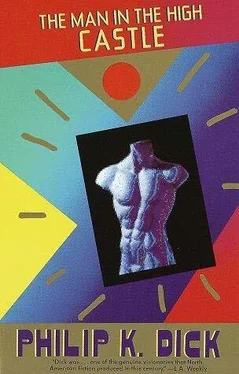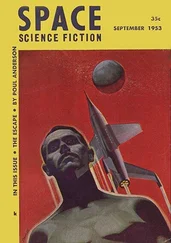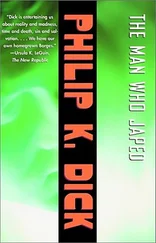The Man in the High Castle
by Philip K. Dick
To my wife Anne, without whose silence
This book would never have been written.
The version of the I Ching or Book of Changes used and quoted in this novel is the Richard Wilhelm translation rendered into English by Cary F. Baynes, published by Pantheon Books, Bollingen Series XIX, 1950, by the Bollingen Foundation, Inc., New York.
The haiku on page 45 is by Yosa Buson, translated by Harold G. Henderson, from the Anthology of Japanese Literature , Volume One, compiled and edited by Donald Keene, Grove Press, 1955, New York.
The waka on page 128 is by Chiyo, translated by Daisetz T. Suzuki, from Zen and Japanese Culture , by Daisetz T. Suzuki, published by Pantheon Books, Bollingen Series LXIV, 1959, by the Bollingen Foundation, Inc., New York,
I have made much use of The Rise and Fall of the Third Reich, A History of Nazi Germany , by William L. Shirer, Simon and Schuster, 1960, New York; Hitler, a Study in Tyranny , by Alan Bullock, Harper, 1953, New York; The Goebbels Diaries, 1942-1943 , edited and translated by Louis P. Lochner, Doubleday & Company, Inc., 1948, New York; The Tibetan Book of the Dead , compiled and edited by W. Y. Evans-Wentz, Oxford University Press, 1960, New York; The Foxes of the Desert , by Paul Carell, E.P. Dutton & Company, Inc., 1961, New York. And I owe personal thanks to the eminent Western writer Will Cook for his help with material dealing with historic artifacts and the U.S. Frontier Period.
For a week Mr. R. Childan had been anxiously watching the mail. But the valuable shipment from the Rocky Mountain States had not arrived. As he opened up his store on Friday morning and saw only letters on the floor by the mail slot he thought, I’m going to have an angry customer.
Pouring himself a cup of instant tea from the five-cent wall dispenser he got a broom and began to sweep; soon he had the front of American Artistic Handcrafts Inc. ready for the day, all spick and span with the cash register full of change, a fresh vase of marigolds, and the radio playing background music. Outdoors along the sidewalk businessmen hurried toward their offices along Montgomery Street. Far off, a cable car passed; Childan halted to watch it with pleasure. Women in their long colorful silk dresses … he watched them, too. Then the phone rang. He turned to answer it.
“Yes,” a familiar voice said to his answer. Childan’s heart sank. “This is Mr. Tagomi. Did my Civil War recruiting poster arrive yet, sir? Please recall; you promised it sometime last week.” The fussy, brisk voice, barely polite, barely keeping the code. “Did I not give you a deposit, sir, Mr. Childan, with that stipulation? This is to be a gift, you see. I explained that. A client.”
“Extensive inquiries,” Childan began, “which I’ve had made at my own expense, Mr. Tagomi, sir, regarding the promised parcel, which you realize originates outside of this region and is therefore—”
But Tagomi broke in, “Then it has not arrived.”
“No, Mr. Tagomi, sir.”
An icy pause.
“I can wait no furthermore,” Tagomi said.
“No sir.” Childan gazed morosely through the store window at the warm bright day and the San Francisco office buildings.
“A substitute, then. Your recommendation, Mr. Chil- dan ?” Tagomi deliberately mispronounced the name; insult within the code that made Childan’s ears burn. Place pulled, the dreadful mortification of their situation. Robert Childan’s aspirations and fears and torments rose up and exposed themselves, swamped him, stopping his tongue. He stammered, his hand sticky on the phone. The air of his store smelled of the marigolds; the music played on, but he felt as if he were falling into some distant sea.
“Well …” he managed to mutter. “Butter churn. Icecream maker circa 1900.” His mind refused to think. Just when you forgot about it; just when you fool yourself. He was thirty-eight years old, and he could remember the prewar days, the other times. Franklin D. Roosevelt and the World’s Fair; the former better world. “Could I bring various desirable items out to your business location?” he mumbled.
An appointment was made for two o’clock. Have to shut store, he knew as he hung up the phone. No choice. Have to keep goodwill of such customers; business depends on them.
Standing shakily, he became aware that someone—a couple—had entered the store. Young man and girl, both handsome, well-dressed. Ideal. He calmed himself and moved professionally, easily, in their direction, smiling. They were bending to scrutinize a counter display, had picked up a lovely ashtray. Married, he guessed. Live out in City of the Winding Mists, the new exclusive apartments on Skyline overlooking Belmont.
“Hello,” he said, and felt better. They smiled at him without any superiority, only kindness. His displays—which really were the best of their kind on the Coast—had awed them a little; he saw that and was grateful. They understood.
“Really excellent pieces, sir,” the young man said.
Childan bowed spontaneously.
Their eyes, warm not only with human bond but with the shared enjoyment of the art objects he sold, their mutual tastes and satisfactions, remained fixed on him; they were thanking him for having things like these for them to see, pick up and examine, handle perhaps without even buying. Yes, he thought, they know what sort of store they are in; this is not tourist trash, not redwood plaques reading MUIR WOODS, MARIN COUNTY, PSA , or funny signs or girly rings or postcards or views of the Bridge. The girl’s eyes especially, large, dark. How easily, Childan thought, I could fall in love with a girl like this. How tragic my life, then; as if it weren’t bad enough already. The stylish black hair, lacquered nails, pierced ears for the long dangling brass handmade earrings.
“Your earrings,” he murmured. “Purchased here, perhaps?”
“No,” she said. “At home.”
Childan nodded. No contemporary American art; only the past could be represented here, in a store such as his. “You are here for long?” he asked. “To our San Francisco?”
“I’m stationed here indefinitely,” the man said. “With Standard of Living for Unfortunate Areas Planning Commission of Inquiry.” Pride showed on his face. Not the military. Not one of the gum-chewing boorish draftees with their greedy peasant faces, wandering up Market Street, gaping at the bawdy shows, the sex movies, the shooting galleries, the cheap nightclubs with photos of middle-aged blondes holding their nipples between their wrinkled fingers and leering… the honkytonk jazz slums that made up most of the flat part of San Francisco, rickety tin and board shacks that had sprung up from the ruins even before the last bomb fell. No—this man was of the elite. Cultured, educated, even more so than Mr. Tagomi, who was after all a high official with the ranking Trade Mission on the Pacific Coast. Tagomi was an old man. His attitudes had formed in the War Cabinet days.
“Had you wished American traditional ethnic art objects as a gift?” Childan asked. “Or to decorate perhaps a new apartment for your stay here?” If the latter… his heart picked up.
“An accurate guess,” the girl said. “We are starting to decorate. A bit undecided. Do you think you could inform us?”
“I could arrange to arrive at your apartment, yes,” Childan said. “Bringing several hand cases, I can suggest in context, at your leisure. This, of course, is our speciality.” He dropped his eyes so as to conceal his hope. There might be thousands of dollars involved. “I am getting in a New England table, maple, all wood-legged, no nails. Immense beauty and worth. And a mirror from the time of the 1812 War. And also the aboriginal art: a group of vegetable-dyed goat-hair rugs.”
Читать дальше










